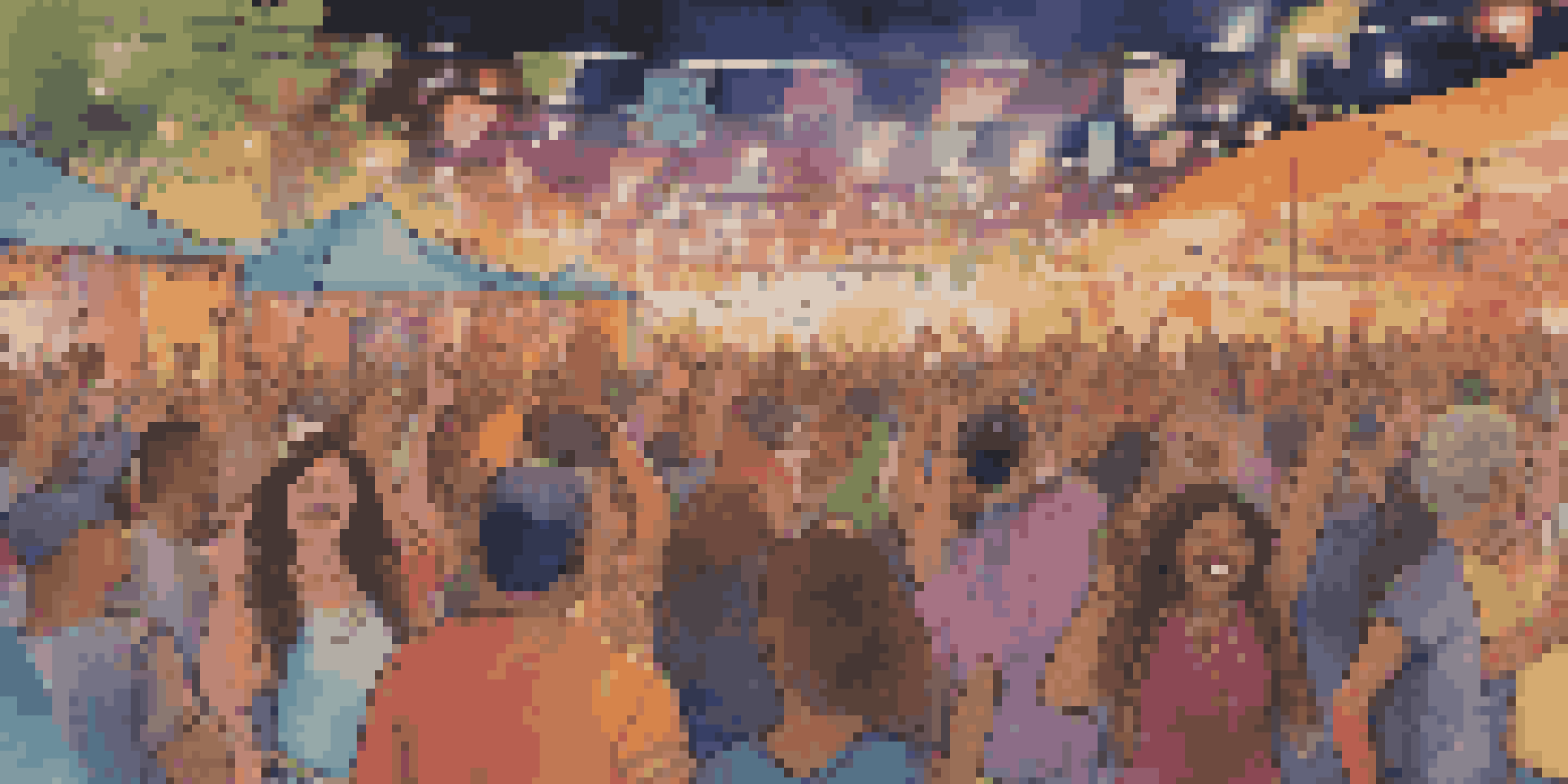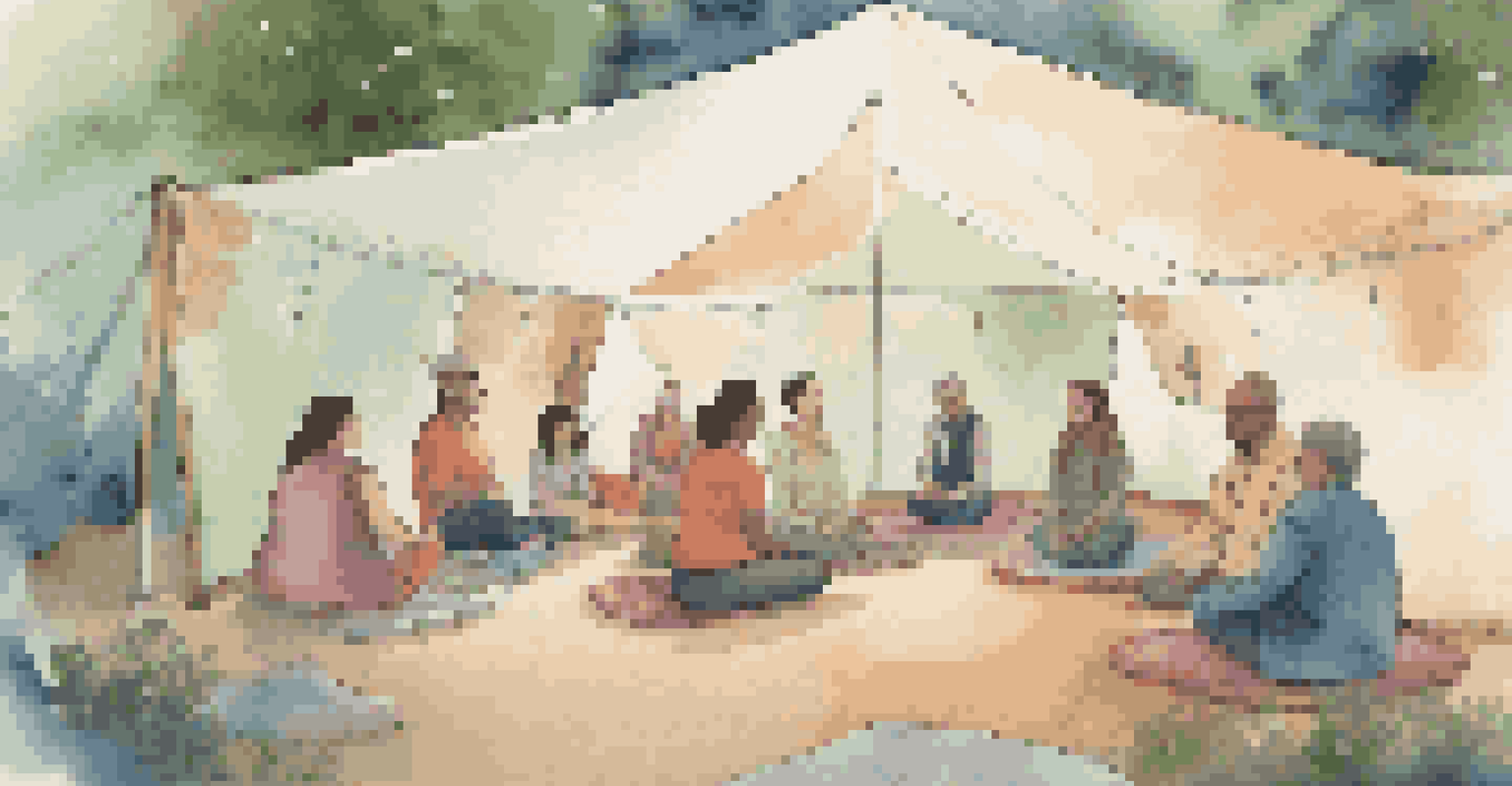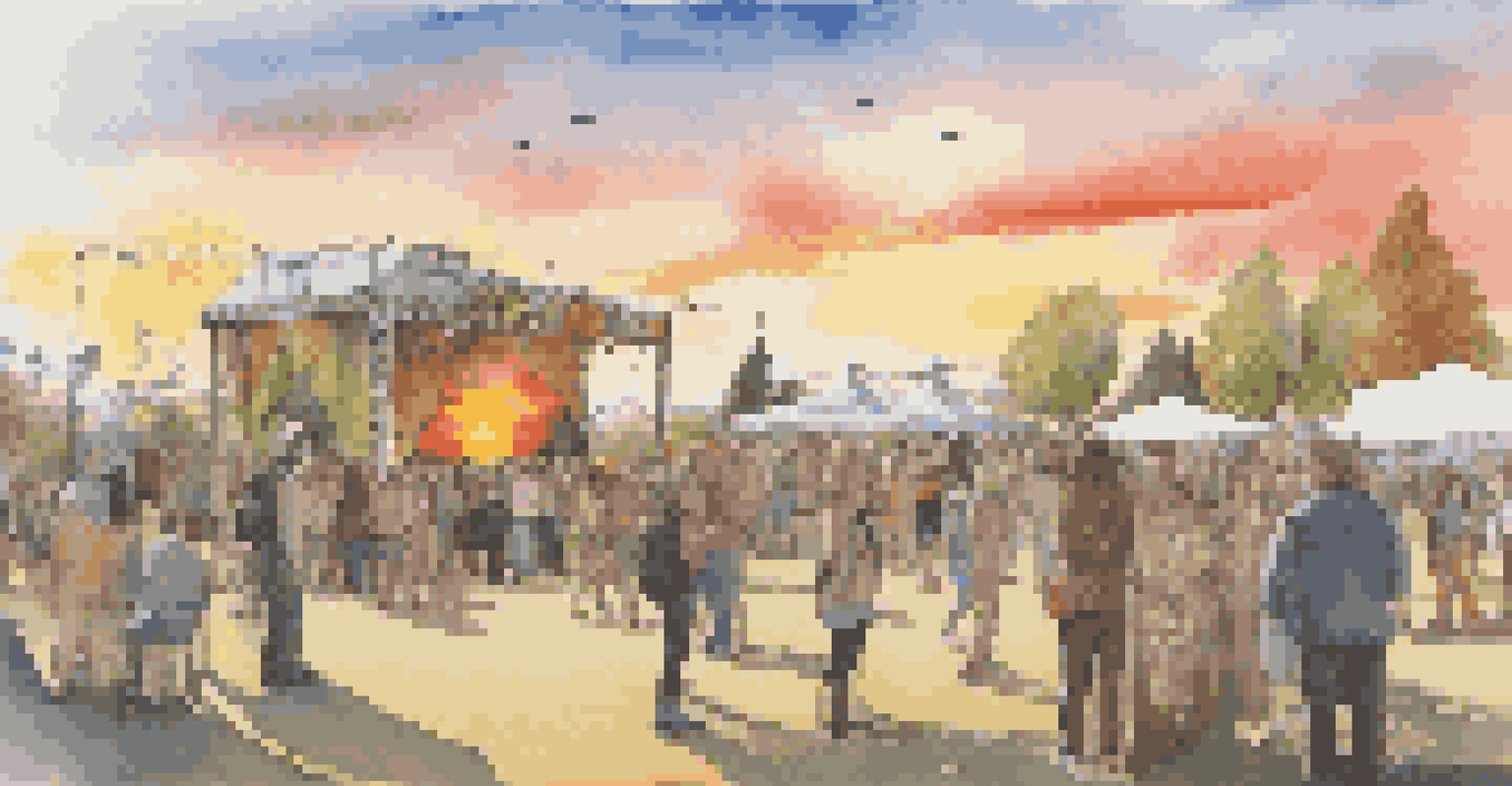How Music Festivals Serve as Platforms for Social Change

Music Festivals: A Catalyst for Social Awareness
Music festivals have evolved into powerful platforms where social issues take center stage. With thousands of attendees gathered for a shared love of music, these events create a unique environment for dialogue and awareness. For instance, many festivals incorporate charitable initiatives, encouraging attendees to engage with causes that matter.
Music is the universal language of mankind.
This not only amplifies the voices of various movements but also fosters a sense of community among festival-goers. Picture a vibrant crowd swaying to the beats while learning about climate change or racial equality from passionate speakers. Such interactions can lead to lasting impressions that extend beyond the festival grounds.
As attendees connect with these social causes, they often leave with a renewed sense of purpose. Many participants find themselves motivated to take action, whether that means volunteering, donating, or simply spreading the word about important issues.
Uniting Diverse Communities Through Music
One of the most beautiful aspects of music festivals is their ability to bring together diverse groups of people. Regardless of background, age, or beliefs, attendees unite for a shared experience, creating a melting pot of cultures and ideas. This unity can spark conversations that challenge stereotypes and promote understanding.

For example, at festivals like Coachella or Glastonbury, you’ll find people from all walks of life dancing side by side. These interactions can break down barriers, making room for empathy and acceptance. When individuals come together in this way, they often leave with a broader perspective on societal issues.
Music Festivals Foster Social Change
These events serve as platforms for raising awareness and motivating attendees to engage with important social issues.
Moreover, this sense of community fosters a collective identity, empowering attendees to work together towards common goals. By sharing stories and experiences, they become advocates for change, transforming their festival experience into a powerful movement.
Raising Funds for Important Causes
Many music festivals incorporate fundraising efforts to support various social causes. Through ticket sales, merchandise, and donations, they generate significant revenue that can be directed towards charities and initiatives. For instance, the famous Bonnaroo Music and Arts Festival has raised millions for organizations like the Bonnaroo Works Fund.
The arts are not a luxury. They are a necessity for human life.
These funds often support local communities and address pressing issues such as education, healthcare, and environmental protection. When attendees know their ticket purchase contributes to a good cause, it deepens their connection to the festival and its mission. This sense of purpose can transform a simple event into a life-changing experience.
Additionally, festivals frequently collaborate with non-profits to raise awareness about their missions. By showcasing these organizations, festivals help to amplify their messages and encourage festival-goers to get involved.
Promoting Environmental Sustainability
As awareness of environmental issues grows, many music festivals are stepping up as champions of sustainability. They implement eco-friendly practices such as waste reduction, recycling, and using renewable energy sources. For example, the Glastonbury Festival has made significant strides toward reducing its carbon footprint.
These initiatives not only minimize the environmental impact of large gatherings but also educate attendees about sustainable practices. When people see festivals actively working to protect the planet, it inspires them to adopt similar habits in their own lives. It’s a ripple effect that can lead to broader societal change.
Unity Through Diverse Experiences
Music festivals create a melting pot of cultures, promoting empathy and understanding among attendees from various backgrounds.
Furthermore, festivals often use their platforms to promote environmental advocacy. Workshops, discussions, and art installations focused on sustainability encourage festival-goers to think critically about their choices and the world around them.
Empowering Underrepresented Voices in Music
Music festivals are increasingly prioritizing diversity and inclusion, providing opportunities for underrepresented artists to shine. By creating lineups that feature a variety of genres and backgrounds, festivals amplify voices that may otherwise go unheard. This practice not only enriches the festival experience but also sends a powerful message of acceptance.
For instance, festivals like Afropunk celebrate Black culture and showcase artists from marginalized communities. These platforms allow performers to share their stories and connect with audiences on a deeper level. The impact is twofold: artists gain visibility while attendees are exposed to new perspectives.
By supporting diverse talent, music festivals foster a culture of empowerment that encourages creativity and innovation. This not only benefits the music industry but also promotes social change by challenging norms and breaking down barriers.
Creating Safe Spaces for Dialogue and Healing
Music festivals often serve as safe havens where individuals can express themselves freely. This environment allows for open dialogue about mental health, gender equality, and other pressing social issues. Many festivals now include workshops and discussions designed to foster conversation and healing.
For instance, events like the Shambhala Music Festival offer mental wellness spaces where attendees can engage in mindfulness practices and share their experiences. These initiatives encourage vulnerability, creating a sense of belonging that resonates deeply with participants. When people feel safe to share their stories, it can lead to powerful transformations.
Empowering Future Activists
By inspiring youth to engage with social causes, music festivals nurture a culture of activism that can shape future leaders.
Moreover, these safe spaces can be crucial for marginalized groups seeking support and understanding. Festivals that prioritize inclusivity contribute to healing and empowerment, reinforcing the idea that music is not just entertainment but a catalyst for social change.
Inspiring Future Generations of Activists
As music festivals continue to champion social causes, they play a pivotal role in inspiring younger generations. By exposing youth to various issues and encouraging activism, festivals create a culture of engagement that can last a lifetime. This early involvement often sparks a passion for social justice and community service.
For example, initiatives like the Warped Tour’s 'Music Saves Lives' program educate teens about health and wellness while promoting volunteerism. Such programs empower young attendees to take action, whether through volunteering or advocating for change in their own communities. This sense of agency can shape their future endeavors.

By fostering a culture of activism through music, festivals nurture a new generation of leaders who are equipped to tackle pressing social issues. The lessons learned at these events can resonate throughout their lives, driving them to create a more equitable and compassionate world.